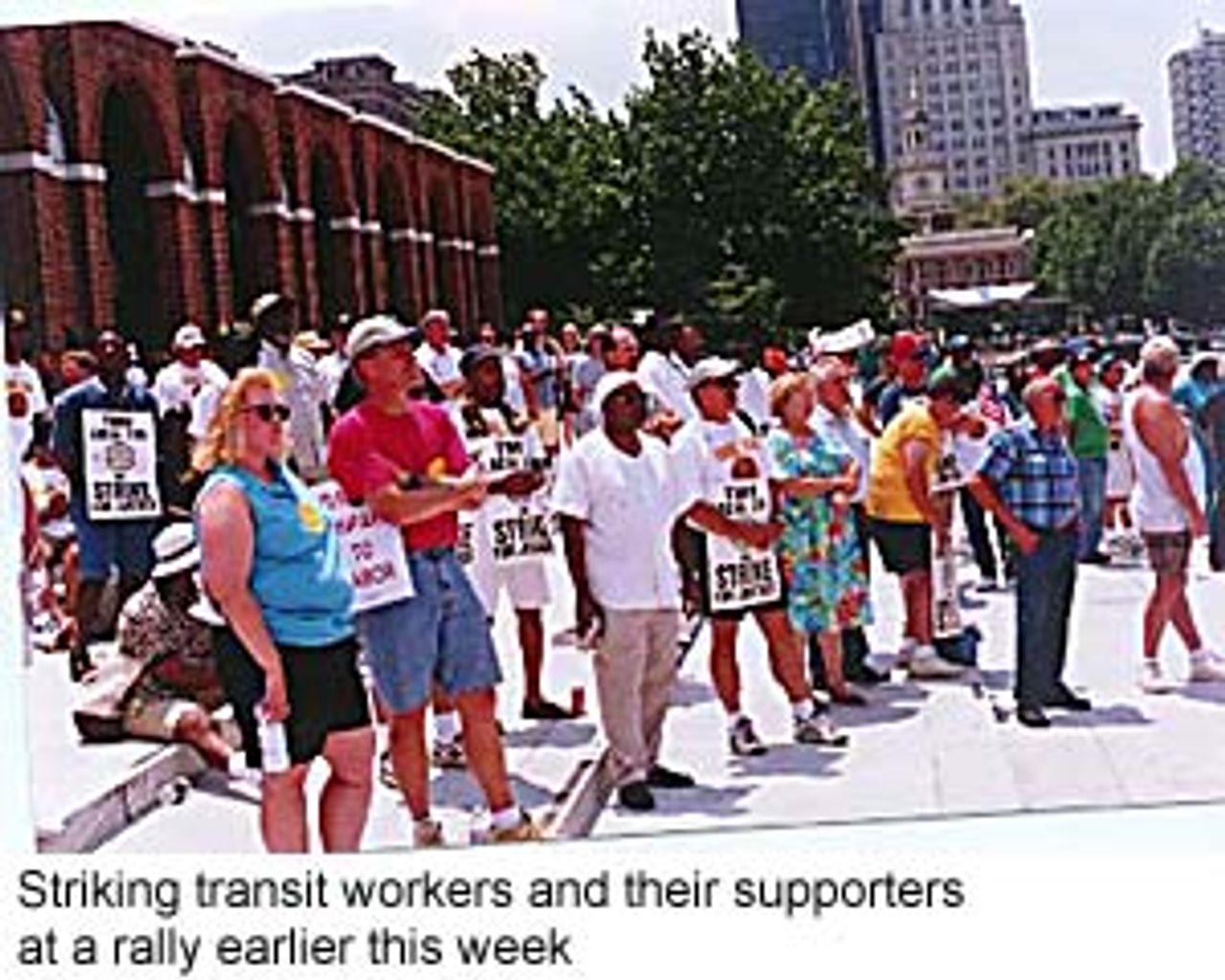 Talks between Local 234 of the Transport Workers Union (TWU) and the Southeastern Pennsylvania Transportation Authority (SEPTA) broke off June 30 with management continuing to insist on major concessions. A strike involving 5, 500 SEPTA employees began June 1 and has shut down a transit system that serves 435,000 commuters daily.
Talks between Local 234 of the Transport Workers Union (TWU) and the Southeastern Pennsylvania Transportation Authority (SEPTA) broke off June 30 with management continuing to insist on major concessions. A strike involving 5, 500 SEPTA employees began June 1 and has shut down a transit system that serves 435,000 commuters daily.
Negotiations ended abruptly the evening of June 29 after six hours when Local 234 President Steve Brookens walked out, calling the talks 'a bust.' The breakdown followed eight consecutive days of talks. Talks resumed on June 30 with the participation of Joseph Raucher, head of the Philadelphia AFL-CIO, and Harry Lombardo, international vice President of the TWU. However the session ended at 4 PM with Brookens again announcing no progress.
After the failure of the talks a group of some 150 transit workers marched to picket the venue of a scheduled meeting of the site advisory committee of the Democratic National Committee. The committee had been scheduled to tour Philadelphia to assess prospects for its hosting the 2000 Democratic national convention. The TWU protest tied up traffic at the height of rush hour. In response DNC delegates left town, saying they would return after the strike was settled.
TWU officials blamed Philadelphia's Democratic mayor, Ed Rendell, and Democratic State Senator Vince Fumo for the failure of the negotiations. 'All of this has been brought about by a Democratic mayor and a Democratic state senator who over the last 10 days sought to create the impression that a settlement was at hand in order to defer any protests, pickets or other demonstrations while the DNC was in the city,' said TWU Local 234 business agent Bruce Bodner.
In response Fumo denounced Local 234, predicting that the strike would last until 'sometime in the fall or winter.' He has backed plans by SEPTA management to restart some trains using supervisory personnel.
Both sides had been reporting 'modest' progress prior to this week's talks, but SEPTA's demand for concessions hardened when TWU officials over the weekend backed off from a much publicized threat to shut down regional rail lines which link the city and suburbs. These rail lines have been key to SEPTA's plans to undermine the strike. SEPTA has brought in rail cars from as far away as Virginia, enabling it to carry 135,000 passengers on these lines daily, up from 90,000 before the strike.
According to Brookens, SEPTA is demanding $15 million in savings from the workers and has rejected an offer that would have cost the same as the previous three-year contract. Brookens said, 'We have made a contract proposal that is zero cost to SEPTA. That means there would be no increase in fares, no decrease in service, and SEPTA has rejected that ... There's nothing further to discuss.' Brookens did not disclose what changes in pensions and benefits the union had agreed to.
The TWU filed papers June 29 in Pennsylvania State Supreme Court opposing the city council's request for court-supervised, round-the-clock negotiations. City Council President John Street filed the suit Friday.
See Also:
Philadelphia transit workers continue strike
[30 June 1998]
